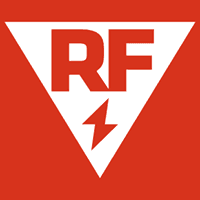AFTER THE TORNADO
A tornado will usually pass very quickly. Although it may seem endless, the whole ordeal will be over within five or 10 minutes. You can then start recovering from the disaster.
If You Are Trapped
Do not panic. Panicked movements may cause injury. Try to attract attention to your location by tapping a pope or a wall so rescuers can locate you. If you have one, use an emergency whistle, or call for help with a cell phone. Shout only as a last resort; shouting can cause you to inhale dangerous amounts of dust.
Immediately After the Tornado
- Check for injuries. Provide first aid or seek medical attention.
- Listen to the radio for news about what to do, where to go and places to avoid.
- Follow the instructions of emergency responders.
- Help your pets; keep them leashed or in a carrier and maintain close contact.
- If there are few visible reference points remaining above ground, use spray paint o mark existing landmarks with addresses. This will help rescue personnel navigate and respond effectively.
- If you were not together during the storm, find or contact your family.
In the Following Days
- Look after yourself and your family. A disaster can cause emotional and physical stress.
- Call your insurance agent and start making a list of your damaged or lost items.
- Notify your creditors as soon as possible about lost bills or difficulties in paying bills.
- Call your employer if you cannot get back to work because of the disaster.
- Find out if you qualify for disaster assistance.
Inspect and Clean Up Safely
Follow the precautions below to stay safe when inspecting and cleaning up your property after a tornado.
Fire, Electrocution or Explosion
- Do not touch downed power lines or objects in contact with them. Report electrical hazards to the police and the utility company.
- If you suspect damage to your home, see frayed wiring or sparks, or smell something burning, shut off the electricity at the main circuit breaker immediately and close the valves on natural gas and propane tanks.
- If you smell gas, notify emergency authorities and do no turn on the lights, light matches, smoke or do anything that could cause a spark.
- If it is dark with you are inspecting your home, use a flashlight rather than a candle or torch.
Debris
- Be aware of the risk of injury from exposed nails and broken glass.
- Wear a hard hat, goggles, heavy work gloves and watertight boots with a steel toe and insole during cleanup work.
Floodwater
Water may be electrically charged or contaminated.
- If there has been a backflow of sewage into your house, wear rubber boots, rubber gloves and goggles during cleanup of the affected area.
- Never turn poer on or off or use an electric tool or appliance while standing in water.
- Remove and discard items that cannot be washed and disinfected.
Structural Damage
- Stay away from damaged buildings and structures that have not been examined and certified by an inspector.
- Return home only when local authorities say it is safe to do so. Enter carefully and check for damage.
- Leave immediately if you hear shifting or unusual noises that signal that the structure may fall.
- Contact a local building inspector for information on structural safety codes and standards.



